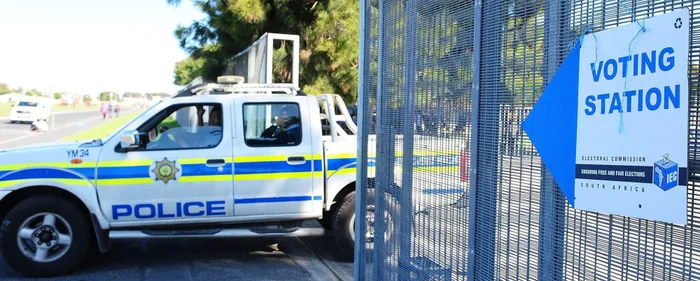IEC officials decry being targeted for poor service delivery

IEC officials have have spoken out about being targeted for poor service delivery.
Image: FILE/ Phando Jikelo
“WE ARE being used as a tool to protest for service delivery.”
This was according to Brenda Yalezo, a local electoral project coordinator based in the Khayelitsha area, during an IEC event about “Violent Crime and the Impact on the Ability and Willingness of Citizens to Participate in Elections,” last week.
There are 14 coordinators working across the Cape Metro to oversee electoral operations, Yalezo said.
“Each area has unique socio-political dynamics. There are gang activities happening, we work in all these different areas where there's shooting. You have extortion and robbery. Then we have gender-based violence, we see every day in the areas we are working in. In the very same areas, there's food insecurities, people are hungry and unemployed. They are staying in overcrowded living conditions. There is poor sanitation in the areas we are working in. We are at risk as IEC officials because we are going into those areas. We are also the first people to be exposed to crime. All these conditions create tension within the communities, which makes delivering electoral safety more difficult because it affects us,” Yalezo said.
Detailing several examples she said in one instance, a voting session in Marikana, Philippi could not open during registration weekend, “because the IEC was used as a tool to protest for housing. Police could not do anything, the voting station was not open on a national registration weekend.
In Site b, Khayelitsha she said a tent was slashed with a knife, while a generator was stolen in Table View.
In Thabo Mbeki informal settlement, an official was held hostage because the community wanted local people employed by the IEC to be verified by them.
In Manenberg, officials were robbed of boxes of IEC branded T-shirts, which resulted in staff not having the necessary attire on election day.
“These are not isolated incidents; they represent every day risk we face. These challenges extend beyond the officials and affect the very communities we serve. Many residents live in constant fear with daily life dictated by gang violence and robberies. People are scared to go to the voting station because they do not want to be casualties. Crime suppresses the voter turnout as people fear leaving their homes. Young people and other citizens grow increasingly apathetic about registering and voting believing the government cannot provide even the most basic level of safety and employment,” she said.
Faith-based communities collaborating with the IEC could have a big impact, according to Chrystal Eva Maphike from the Western Cape Council of Churches.
“Maybe we should look at how we can do education and mobilisation through faith-based organisations. Then also our people on the ground working in our communities, if we can identify these organisations to have these kinds of sessions where they can impact the community to change the minds of people,” Maphike said.
Cape Times